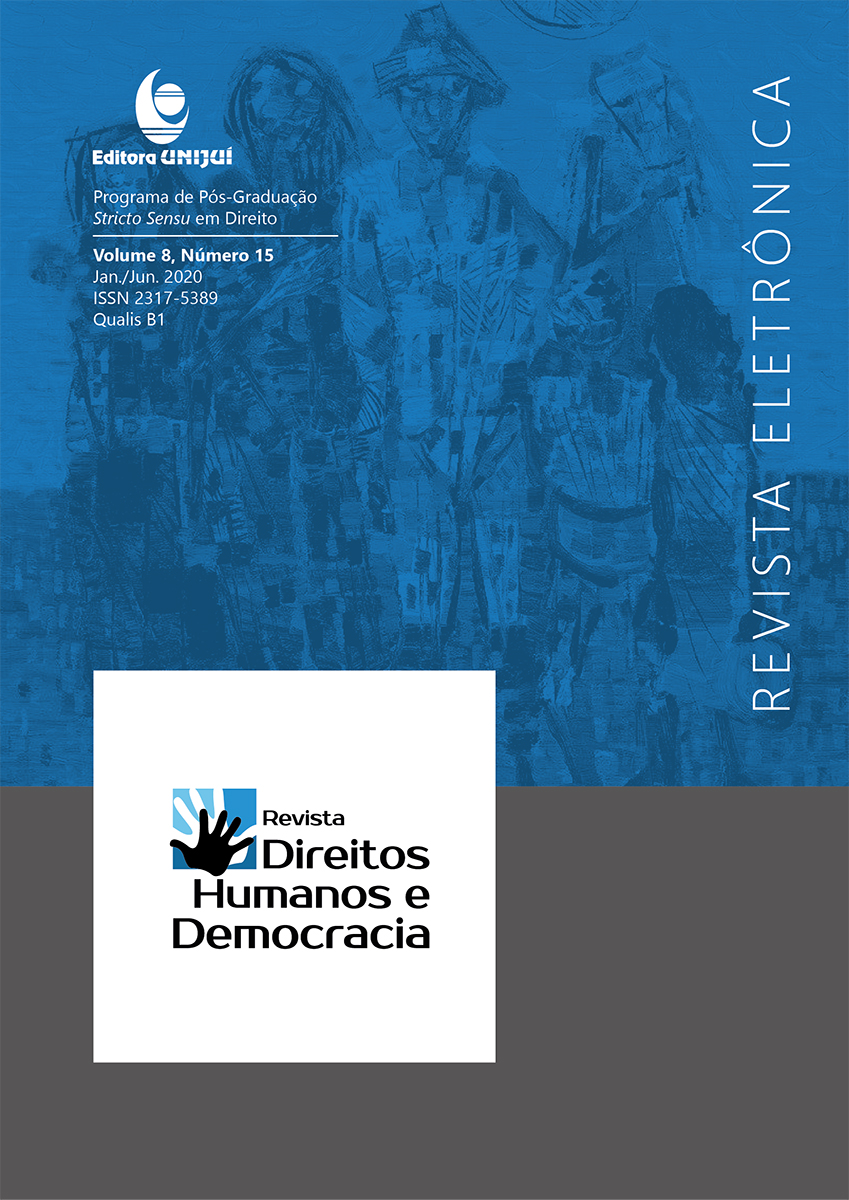O MARCO DA CARTA DEMOCRÁTICA INTERAMERICANA E SUA INTERPRETAÇÃO NO PROCESSO DE IMPEACHMENT DA PRESIDENTE DILMA ROUSSEFF: REPENSANDO A DEMOCRACIA
DOI:
https://doi.org/10.21527/2317-5389.2020.15.191-203Resumo
Após repensar a categoria de democracia a partir dos teóricos clássicos e contemporâneos, como analisar a posição da CoIDH, acerca da solicitação de opinião consultiva feita pelo Secretário Geral da Organização dos Estados Americanos, a respeito do processo de impeachment da Presidente Dilma Rousseff? O objetivo deste artigo foi, por meio de um estudo de caso, repensar os contornos da democracia. Verificou-se que a CoIDH negou o prosseguimento do pedido acerca da legitimidade do impeachment por unanimidade, ou seja, a Corte “opinou por não opinar”. Levando-se em consideração que o sistema interamericano considera a Carta como manifesto em favor da democracia representativa nas Américas propondo um conceito de democracia que transcende a ideia de democracia eleitoral, a decisão da Corte respeita as bases jurídicas da legislação internacional mas é contraditória à da transcendência democrática que vai além do voto. A metodologia utilizada foi qualitativa com método de estudo de caso.
Downloads
Publicado
Como Citar
Edição
Seção
Licença
Ao publicar na Revista Direitos Humanos e Democracia, os autores concordam com os seguintes termos:
Os trabalhos seguem a licença Creative Commons Atribuição 4.0 Internacional (CC BY 4.0), que permite:
Compartilhar — copiar e redistribuir o material em qualquer meio ou formato;
Adaptar — remixar, transformar e criar a partir do material para qualquer fim, inclusive comercial.
Essas permissões são irrevogáveis, desde que respeitados os seguintes termos:
Atribuição — os autores devem ser devidamente creditados, com link para a licença e indicação de eventuais alterações realizadas.
Sem restrições adicionais — não podem ser aplicadas condições legais ou tecnológicas que restrinjam o uso permitido pela licença.
Avisos:
A licença não se aplica a elementos em domínio público ou cobertos por exceções legais.
A licença não garante todos os direitos necessários para usos específicos (ex.: direitos de imagem, privacidade ou morais).
A revista não se responsabiliza pelas opiniões expressas nos artigos, que são de exclusiva responsabilidade dos autores. O Editor, com o apoio do Comitê Editorial, reserva-se o direito de sugerir ou solicitar modificações quando necessário.
Somente serão aceitos artigos científicos originais, com resultados de pesquisas de interesse que não tenham sido publicados nem submetidos simultaneamente a outro periódico com o mesmo objetivo.
A menção a marcas comerciais ou produtos específicos destina-se apenas à identificação, sem qualquer vínculo promocional por parte dos autores ou da revista.
Contrato de Licença: Os autores mantém os direitos autorais sobre seu artigo, e concedem a Revista Direitos Humanos e Democracia o direito de primeira publicação.













